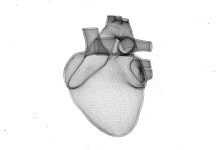A recent study has shown the link between menopausal hormone therapy (MHT) and brain health in women
The research used information from the UK Biobank data and analysed MRI brain scans from almost 2000 women, revealing results about how MHT might influence brain ageing.
Assessing the Brain Age Gap
MHT is usually given to women to alleviate symptoms during menopause and has been thought to offer some protection against cognitive decline and diseases like Alzheimer’s.
The study focused on assessing the “brain age gap,” which reflects the difference between a woman’s chronological age and her brain’s apparent age, along with other indicators of brain health.
The findings showed that current MHT users revealed a higher brain age gap, indicating their brains appeared older than expected for their age. In contrast, women who had previously used MHT displayed no significant differences in brain ageing compared to those who had never used it.
Using MHT
The timing of MHT usage also played a key role. Women who last used MHT at an older age showed greater brain age gaps and reduced hippocampal volumes. Those who underwent surgical procedures to remove their uterus or ovaries while on MHT had a lower brain age gap compared to those who did not have similar surgeries.
The study emphasises the importance of considering various MHT factors, such as timing, formulation, and the woman’s health history, when evaluating its impact on brain health.
Making informed decisions during menopause
Current users were generally younger and less likely to be postmenopausal, meaning they might experience different neurological challenges compared to older women who had finished therapy.
While the research found subtle adverse brain health characteristics associated with current MHT use, it did not support a strong neuroprotective effect or indicate severe negative consequences for the female brain.
This study contributes to the ongoing conversation about MHT, showing why it’s necessary for more extensive research to guide women in making informed decisions about their health during menopause.











